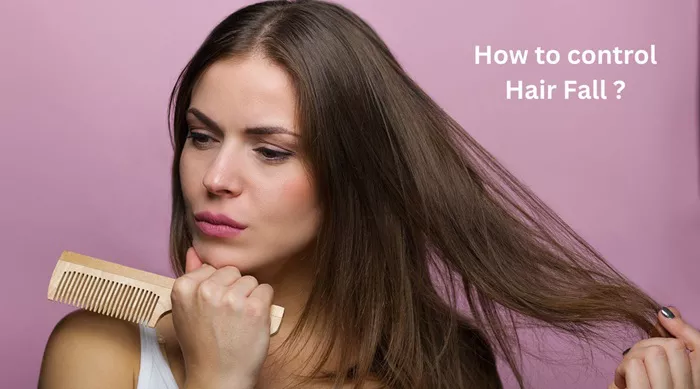Hair fall can be a concerning issue for many individuals, especially at the age of 18 when hormonal changes and lifestyle factors can contribute to increased shedding. Understanding the causes and adopting effective strategies can help manage and reduce hair fall effectively.
Understanding Hair Fall at 18
At the age of 18, hair fall can occur due to various reasons:
Hormonal Changes:
During adolescence and young adulthood, hormonal fluctuations, particularly changes in androgen levels, can influence hair growth cycles.
Genetic Predisposition:
Family history plays a significant role in determining hair health and susceptibility to conditions like male-pattern or female-pattern baldness.
Nutritional Deficiencies:
Poor dietary choices or inadequate intake of essential nutrients like vitamins (e.g., Biotin, Vitamin D) and minerals (e.g., Iron, Zinc) can impact hair health.
Stress and Lifestyle:
Academic pressure, social changes, irregular sleep patterns, and excessive use of hairstyling products can contribute to hair fall.
Effective Strategies to Control Hair Fall
To combat hair fall effectively at the age of 18, consider the following strategies:
1. Nutritional Support
Balanced Diet: Include foods rich in vitamins (fruits, vegetables), proteins (lean meats, legumes), and minerals (nuts, seeds) to support hair health.
Supplements: Consult with a healthcare provider to determine if supplements like Biotin or Iron are necessary to address deficiencies.
2. Hair Care Routine
Gentle Handling: Avoid tight hairstyles, excessive brushing, or use of harsh chemicals that can weaken hair follicles.
Regular Washing: Keep the scalp clean to prevent clogged pores, which can impede hair growth.
See also: Preventing Hair Fall After 40: A Comprehensive Guide
3. Stress Management
Exercise: Physical activity helps reduce stress levels and improves blood circulation, promoting scalp health.
Relaxation Techniques: Practice yoga, meditation, or deep breathing exercises to manage stress effectively.
4. Hair Care Products
Use of Mild Products: Opt for shampoos and conditioners free from sulfates and parabens to avoid scalp irritation.
Avoid Overstyling: Limit the use of heat styling tools and chemical treatments that can damage hair strands.
5. Medical Consultation
Dermatologist Visit: If hair fall persists despite lifestyle changes, consult a dermatologist to rule out underlying medical conditions like alopecia or thyroid disorders.
Prescription Treatments: Based on diagnosis, your dermatologist may recommend medications like minoxidil or finasteride to promote hair regrowth.
Lifestyle Adjustments for Better Hair Health
In addition to the above strategies, adopting a healthy lifestyle can significantly impact hair fall:
Adequate Sleep:
Aim for 7-9 hours of quality sleep each night to support overall health and hair growth.
Hydration:
Drink plenty of water to keep your scalp hydrated and promote hair elasticity.
Avoid Smoking and Alcohol:
These habits can negatively impact hair health and overall well-being.
Conclusion
Controlling hair fall at the age of 18 requires a multifaceted approach that addresses nutritional deficiencies, minimizes stress, adopts gentle hair care practices, and seeks medical guidance when necessary. By incorporating these strategies into your daily routine, you can effectively manage hair fall and promote healthier, stronger hair growth.
Implementing these recommendations early on can set the foundation for maintaining optimal hair health throughout your life. If concerns persist or worsen, consulting with a healthcare professional is crucial to determine the best course of action tailored to your specific needs.
FAQs
Why Am I Having Hair Loss at 18?
Hair loss at the age of 18 can be attributed to several factors:
Hormonal Changes: Adolescence and early adulthood involve significant hormonal shifts, particularly with androgens (male hormones). These can affect the hair growth cycle, leading to hair thinning or shedding.
Genetic Predisposition: If there is a family history of early-onset hair loss, you might be genetically predisposed to conditions like male-pattern or female-pattern baldness.
Nutritional Deficiencies: A lack of essential nutrients such as vitamins (especially Biotin and Vitamin D) and minerals (like Iron and Zinc) can weaken hair follicles, leading to hair loss.
Stress: High levels of stress, whether from academic pressures, personal issues, or lifestyle changes, can disrupt the hair growth cycle and cause hair loss.
Medical Conditions: Conditions such as thyroid disorders, scalp infections, or autoimmune diseases like alopecia areata can contribute to hair loss.
Hairstyling Practices: Overuse of chemical treatments, heat styling, tight hairstyles, and harsh hair care products can damage hair and lead to shedding.
Can I Regrow My Hair at 18?
Yes, it is possible to regrow hair at 18, especially if the underlying causes of hair loss are addressed. Here are some steps to promote hair regrowth:
Improve Nutrition: Ensure a balanced diet rich in essential vitamins and minerals. Consider supplements if you have deficiencies, after consulting with a healthcare provider.
Adopt Gentle Hair Care Practices: Use mild shampoos and conditioners, avoid excessive heat styling and harsh chemical treatments, and handle your hair gently.
Manage Stress: Engage in regular physical activity, practice relaxation techniques like yoga and meditation, and ensure adequate sleep to reduce stress levels.
Medical Treatments: Over-the-counter treatments like minoxidil can stimulate hair growth. If hair loss persists, consult a dermatologist for prescription medications or other treatments.
Address Medical Conditions: If an underlying medical condition is causing hair loss, treating that condition can help regrow hair. Regular check-ups and following medical advice are crucial.
Is It Normal to Lose Hair in the Shower at 18?
Yes, it is normal to lose some hair in the shower. On average, it is normal to shed about 50-100 hairs per day as part of the natural hair growth cycle. However, if you notice an excessive amount of hair shedding or thinning patches, it might be indicative of an underlying issue that needs to be addressed.
You May Be Interested In

